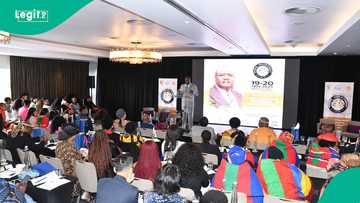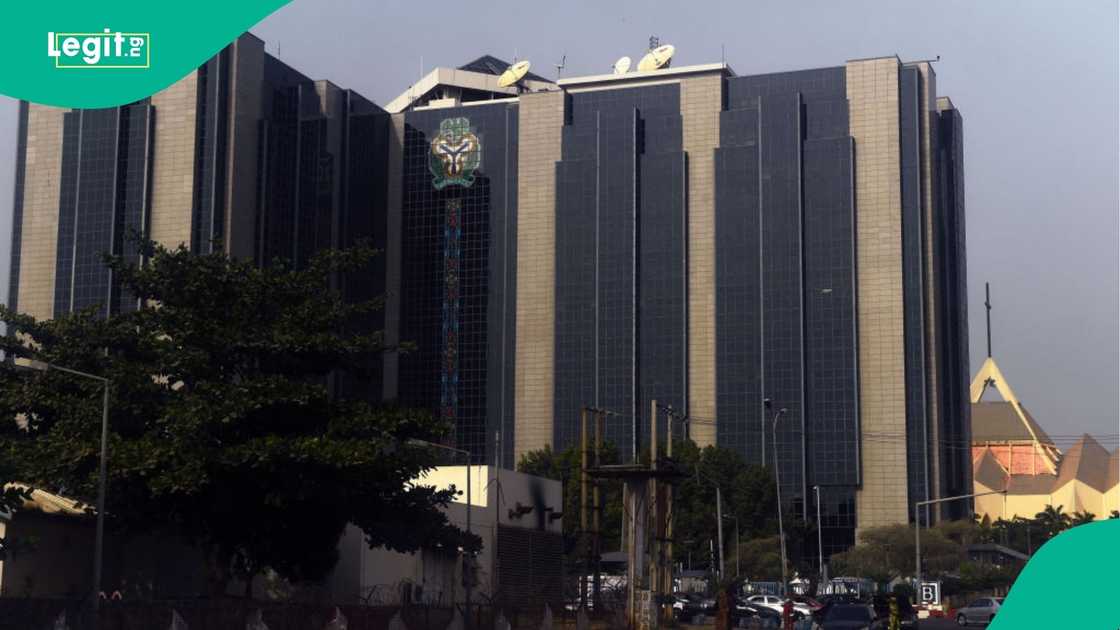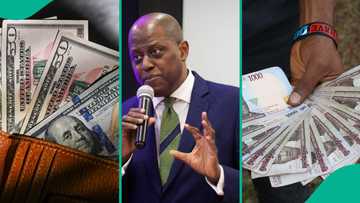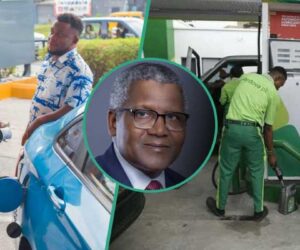- A report by the Central Bank of Nigeria has shown that Nigerians spent $1.39 billion on foreign education in the first half of 2025
- The CBN data shows this is a 20% rise from the amount spent in 2024, and the country earned nothing from foreign students’ entry into Nigeria during the period reviewed
- Private spending on overseas education is nearly equal to the government’s entire 2025 education budget
Oluwatobi Odeyinka is a business editor at Legit.ng, covering energy, the money market, tech and macroeconomic trends in Nigeria.
Nigerians reportedly spent an estimated $1.39 billion (N2.16 trillion) on foreign education in the first half of 2025, according to data from the Central Bank of Nigeria (CBN).
The CBN’s Balance of Payments (BoP) report shows that education-related outflows rose by 20% in dollar terms and 38% in naira terms, based on an average exchange rate of N1,553.6/$ during the period.

Read also
Petroleum sector reforms: Nigeria gets continental recognition as Pan African Parliament speaks
Meanwhile, the data indicates that Nigeria recorded no earnings from foreign students under the “Education” category in its services trade balance. This means the country earned no revenue from foreign students coming to Nigeria.

Source: Getty Images
As reported by The Sun, analysts say the trend reflects the growing number of Nigerians seeking better academic and economic opportunities abroad, as insecurity, unstable academic calendars, ageing infrastructure and frequent industrial actions continue to affect the local tertiary education system.
Rising costs amid a weakened naira
The CBN report shows that the first-half figure for 2025 is the highest since 2021. It also comes at a time when the naira, though more stable in 2025, remains significantly weaker following the foreign exchange reforms of mid-2023.
Despite higher costs, applications for tertiary and postgraduate studies abroad remain strong. Experts note that many households now see foreign education not only as a pathway to quality learning but also as an opportunity for long-term relocation and security.
According to Optiva Capital Partners’ Executive Director for Business Development, Amaka Okeke, people increasingly pursue second citizenship as a way to access global opportunities.
She said prosperity improves when borders do not limit people’s ambitions, adding that families view overseas education as an investment in more stable futures for their children.
Private spending outpaces public funding
The Sun further notes that between 2020 and the first half of 2025, Nigerians spent an estimated $11.1 billion (N9.9 trillion) on education abroad. This amount equals around 2.6% of Nigeria’s annual nominal GDP and, in some years, surpasses the combined federal and state education budgets.
Putting this in context, the federal government allocated N2.52 trillion to education in the 2025 national budget. This is about 5% of total spending for over 200 million people and well below the UNESCO-recommended 15–20%.
Meanwhile, a few thousand Nigerians spent nearly the same amount (N2.16 trillion) on foreign education in just six months of 2025.

Source: Getty Images
US resumes student visa processing for Nigerians
Legit.ng reported that the United States resumed the processing of student visas for Nigerians in June 2025, after halting it for over a month.
The US government announced screening social media activities of applicants, and the updated guidelines require applicants to make their social media profiles public for the review process.
Earlier, the US government had increased visa application fees, with Nigerians applying for non-immigrant visa categories having to pay an average of $185 from $160.
Source: Legit.ng









